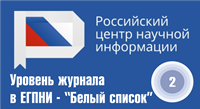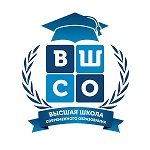РАЗВИТИЕ НАВЫКОВ СПОСОБНОСТИ ДЕЙСТВОВАТЬ В УМЕ У МЛАДШИХ ШКОЛЬНИКОВ, ОБУЧАЮЩИХСЯ ШАХМАТНОЙ ИГРЕ
Аннотация
В статье раскрыта сущность понятия «способность действовать в уме», которое является фундаментальной специфической составляющей человеческого интеллекта и заключается в обеспечении возможности действовать с вещами опосредствованно, т. е. оперировать их знаково-символическими образами, не изменяя самих вещей. Это качество необходимо для успешного осуществления любой деятельности, поскольку лежит в основе таких важнейших ее составляющих, как целеобразование и целеполагание, возможности представить заранее результат, что является мотивацией для школьника в его исследовательском труде для успешного усвоения учебного материала. Приводится история появления и различные определения данного понятия. Актуальность статьи обусловлена важностью повсеместного внедрения шахмат в начальную школу как деятельности, формирующей и развивающей «способность действовать в уме» в младшем школьном возрасте т.к. именно в этом возрасте происходит формирование двух основных психологических новообразований: произвольность психических процессов и внутренний план действий.
Цель статьи заключается в описании сравнительного исследования развития способности действовать в уме у младших школьников, обучающихся и не обучающихся шахматной игре.
Метод или методология проведения работы. Исследование проведено по средствам теста Т.А. Огневой «Архитектор и строители» на определение предрасположенности к успешности в шахматной игре младших школьников, методика А.З. Зака «Логические задачи» на определение уровня сформированности теоретического анализа и внутреннего плана действий.
Результаты. Благодаря развитию способности действовать в уме, доказано, что у детей-шахматистов лучше развита данная способность и способность прогнозировать вероятные варианты решений в разных игровых ситуациях.
Область применения результатов. Результаты исследования могут быть применены в сфере диагностики дошкольников и младших школьников на предмет будущей успешности в шахматной игре и в решении математических задач, а также в целом для определения интеллектуально-волевой готовности детей к обучению в школе.
Скачивания
Литература
Akishina V. V. Metodicheskaya razrabotka Ognevoy T.A. «Kak opredelit’ sposobnosti k obucheniyu shakhmatnoy igre rebenka 5 -7 let» [Methodical development of T.A. Ogneva “How to determine the ability to teach a chess game to a child 5-7 years old”] / ed. Akishina V.V.. https://nsportal.ru/shkola/vneklassnaya-rabota/library/2013/02/08/kak-opredelit-sposobnosti-k-obucheniyu-shakhmatnoy
Baturinskiy V.D. Shakhmatnoe tvorchestvo Botvinnika M.M. [Chess creativity of M.M. Botvinnik]. http://padaread.com/?book=23573&pg=6
Venger L.A. Voprosy psikhologii, 1978, no. 3, pp. 163-165.
Dontsov D. A., Dontsova M. V. Vozrastnaya psikhologiya i psikhologiya razvitiya lichnosti v makroperiode detstva, v otrochestve i yunosti [Developmental psychology and psychology of personality development in the macro period of childhood, adolescence and youth]. M.: Flinta, 2018, 305 p.
Zak A.Z. Osobennosti sformirovannosti sposobnosti deystvovat’ «v ume» u detey 6-7 let [Features of the formation of the ability to act “in the mind” in children 6-7 years old]. http://www.voppsy.ru/issues/1983/831/831043.htm
Krogius N. V. Shakhmaty - shkole [Chess - school] / B. S. Gershunskiy, A. N. Kost’ev; ed. B. S. Gershunsky, N. V. Krogius, V. S. Khelemendik. M.: Pedagogika, 1991, 336 p. https://klex.ru/mdy
Leont’ev A.N. Problemy razvitiya psikhiki [Problems of the development of the psyche]. M., 2020, 526 p.
Metodicheskaya razrabotka «Kak motivirovat’ detey k igre v shakhmaty» [Methodological development “How to motivate children to play chess”] / Teslya I.G. Volgodonsk, 2019. https://infourok.ru/motiviruem-detey-k-igre-v-shahmati-3982788.html
Nimtsovich A. Moya Sistema [My system]. Moscow, 1974. http://padaread.com/?book=25522
Ponomarev Ya.A, Pasternak N.A. Psikhologicheskiy zhurnal, 1995, vol. 16, №6, pp. 43-54.
Ponomarev Ya.A. Metodologicheskoe vvedenie v psikhologiyu [Methodological introduction to psychology]. M.: Nauka, 1983, 205 p.
Popov O.A. Izmerenie v psikhologii. Shkaly izmereniya [Measurement in psychology. Measurement scales]. https://psystat.at.ua/publ/1-1-0-28
Pustovalova N.I., Lazarenko D.V. Vektor nauki Tol’yattinskogo gosudarstvennogo universiteta. Seriya: Pedagogika, psikhologiya, 2012, no. 2(9), pp. 177-180.
Federal state educational standard of primary general education. M.: Prosveshchenie, 2010, 31 p.
Просмотров аннотации: 348
Copyright (c) 2022 Anna V. Aliohina

Это произведение доступно по лицензии Creative Commons «Attribution-NonCommercial-NoDerivatives» («Атрибуция — Некоммерческое использование — Без производных произведений») 4.0 Всемирная.





































